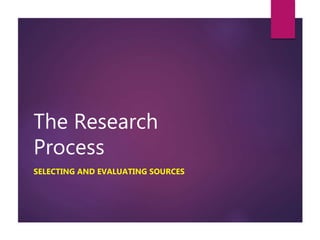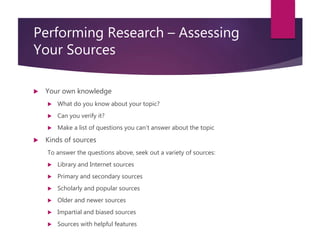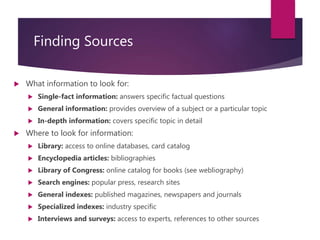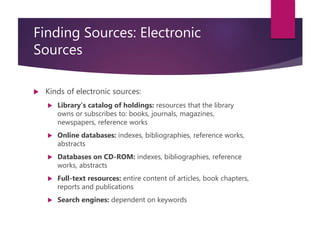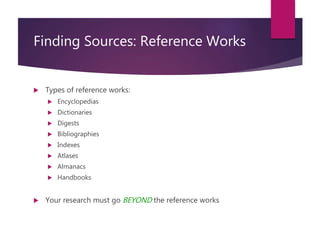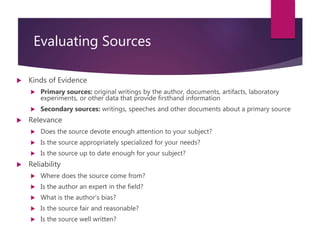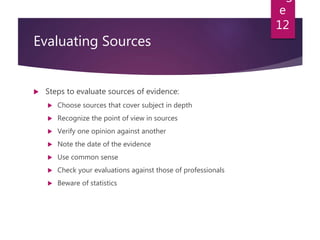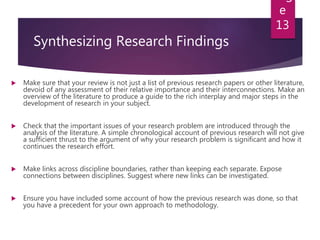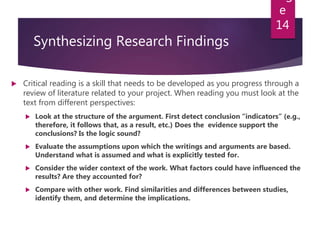The document outlines a structured research strategy for effective writing in information security analysis, emphasizing the importance of a thoughtful plan and systematic procedures throughout the research process. Key activities are detailed, including selecting a researchable topic, evaluating sources, and synthesizing findings, with guidelines for assessing the reliability and relevance of information. The course provides practical tips for organizing research activities and developing a coherent thesis, ultimately leading to a well-prepared final paper and presentation.
